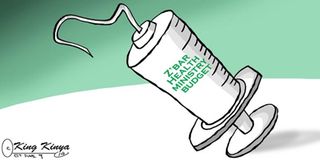Bank interest rates should be reviewed

What you need to know:
Another sticky area that needs to be reviewed as suggested by the House team is the requirement for the statutory minimum reserve (SMR) which is currently placed at 10 per cent for private sector deposits and 40 per cent for government ones.
The request by the Parliamentary Committee on Economy, Industry and Trade to the Bank of Tanzania (BoT) to lower Treasury Bill rates to encourage a similar move by commercial banks on interest rates on loans should be hailed.
Another sticky area that needs to be reviewed as suggested by the House team is the requirement for the statutory minimum reserve (SMR) which is currently placed at 10 per cent for private sector deposits and 40 per cent for government ones.
Commercial banks are currently angling for a drop in the statutory reserve by BoT, which they believe could help convince them to lower interest rates for borrowers. From 2002 to date, the interest rate has averaged 12.65 per cent, reaching an all-time high of 21.42 per cent in June of 2007.
At the current interest rates, many Tanzanians borrow money from banks expecting to prosper, but at the end of the loan period, they realise they are actually much poorer.
Due to frustrations brought about by servicing expensive loans, banks aren’t benefitting fully from potential repeat borrowers and have been reduced to stalking first-time borrowers. But this could change with a healthy collaboration between the BoT and commercial banks.
It is surprising that even though the savings and credit cooperative societies (saccos) are dressed up as the best sources of loans for entrepreneurs as well as ordinary Tanzanians in formal employment, they aren’t different from commercial banks.
What both of these institutions do is sweet talk potential customers into taking up loans that appear cheap at the beginning but end up being significantly burdensome to service.
It is time the government, through BoT, realised that in an ideal environment, loans play one of the most significant roles of spurring national development. Just like the government relies on both internal and external borrowing to meet its development goals, so do wananchi need loans for driving their growth initiatives.




